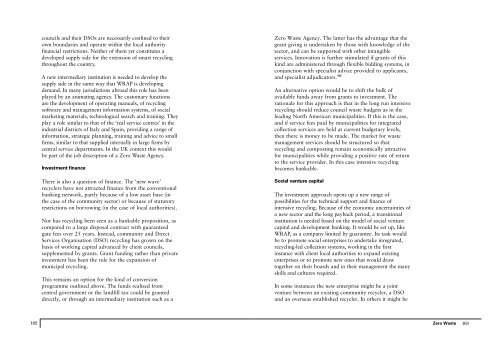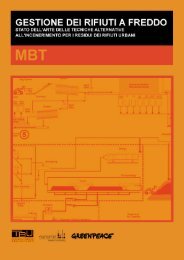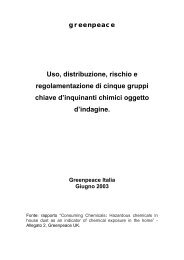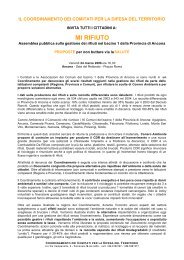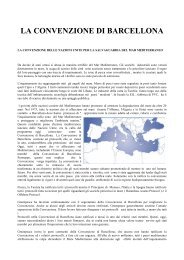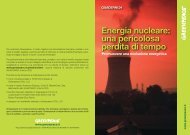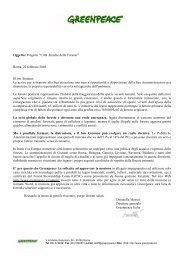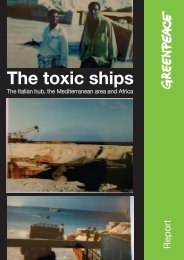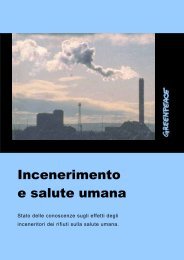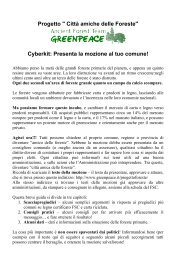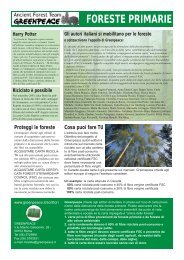Zero Waste by Robin Murray, Greenpeace Environmental Trust 2002
Zero Waste by Robin Murray, Greenpeace Environmental Trust 2002
Zero Waste by Robin Murray, Greenpeace Environmental Trust 2002
You also want an ePaper? Increase the reach of your titles
YUMPU automatically turns print PDFs into web optimized ePapers that Google loves.
councils and their DSOs are necessarily confined to their<br />
own boundaries and operate within the local authority<br />
financial restrictions. Neither of them yet constitutes a<br />
developed supply side for the extension of smart re c y c l i n g<br />
t h roughout the country.<br />
A new interm e d i a ry institution is needed to develop the<br />
supply side in the same way that WRAP is developing<br />
demand. In many jurisdictions abroad this role has been<br />
played <strong>by</strong> an animating agency. The customary functions<br />
a re the development of operating manuals, of re c y c l i n g<br />
s o f t w a re and management information systems, of social<br />
marketing materials, technological search and training. They<br />
play a role similar to that of the ‘real service centres’ in the<br />
industrial districts of Italy and Spain, providing a range of<br />
i n f o rmation, strategic planning, training and advice to small<br />
f i rms, similar to that supplied internally in large firms <strong>by</strong><br />
central service departments. In the UK context this would<br />
be part of the job description of a <strong>Zero</strong> <strong>Waste</strong> Agency.<br />
Investment finance<br />
There is also a question of finance. The ‘new wave’<br />
recyclers have not attracted finance from the conventional<br />
banking network, partly because of a low asset base (in<br />
the case of the community sector) or because of statutory<br />
restrictions on borrowing (in the case of local authorities).<br />
Nor has recycling been seen as a bankable proposition, as<br />
compared to a large disposal contract with guaranteed<br />
gate fees over 25 years. Instead, community and Direct<br />
Services Organisation (DSO) recycling has grown on the<br />
basis of working capital advanced <strong>by</strong> client councils,<br />
supplemented <strong>by</strong> grants. Grant funding rather than private<br />
investment has been the rule for the expansion of<br />
municipal recycling.<br />
This remains an option for the kind of conversion<br />
programme outlined above. The funds realised from<br />
central government or the landfill tax could be granted<br />
directly, or through an intermediary institution such as a<br />
<strong>Zero</strong> <strong>Waste</strong> Agency. The latter has the advantage that the<br />
grant giving is undertaken <strong>by</strong> those with knowledge of the<br />
sector, and can be supported with other intangible<br />
services. Innovation is further stimulated if grants of this<br />
kind are administered through flexible bidding systems, in<br />
conjunction with specialist advice provided to applicants,<br />
and specialist adjudicators. 102<br />
An alternative option would be to shift the bulk of<br />
available funds away from grants to investment. The<br />
rationale for this approach is that in the long run intensive<br />
recycling should reduce council waste budgets as in the<br />
leading North American municipalities. If this is the case,<br />
and if service fees paid <strong>by</strong> municipalities for integrated<br />
collection services are held at current budgetary levels,<br />
then there is money to be made. The market for waste<br />
management services should be structured so that<br />
recycling and composting remain economically attractive<br />
for municipalities while providing a positive rate of return<br />
to the service provider. In this case intensive recycling<br />
becomes bankable.<br />
Social venture capital<br />
The investment approach opens up a new range of<br />
possibilities for the technical support and finance of<br />
intensive recycling. Because of the economic uncertainties of<br />
a new sector and the long payback period, a transitional<br />
institution is needed based on the model of social venture<br />
capital and development banking. It would be set up, like<br />
W R A P, as a company limited <strong>by</strong> guarantee. Its task would<br />
be to promote social enterprises to undertake inre g r a t e d ,<br />
recycling-led collection systems, working in the first<br />
instance with client local authorities to expand existing<br />
enterprises or to promote new ones that would draw<br />
together on their boards and in their management the many<br />
skills and cultures re q u i red.<br />
In some instances the new enterprise might be a joint<br />
venture between an existing community recycler, a DSO<br />
and an overseas established recycler. In others it might be<br />
162<br />
<strong>Zero</strong> <strong>Waste</strong><br />
163


